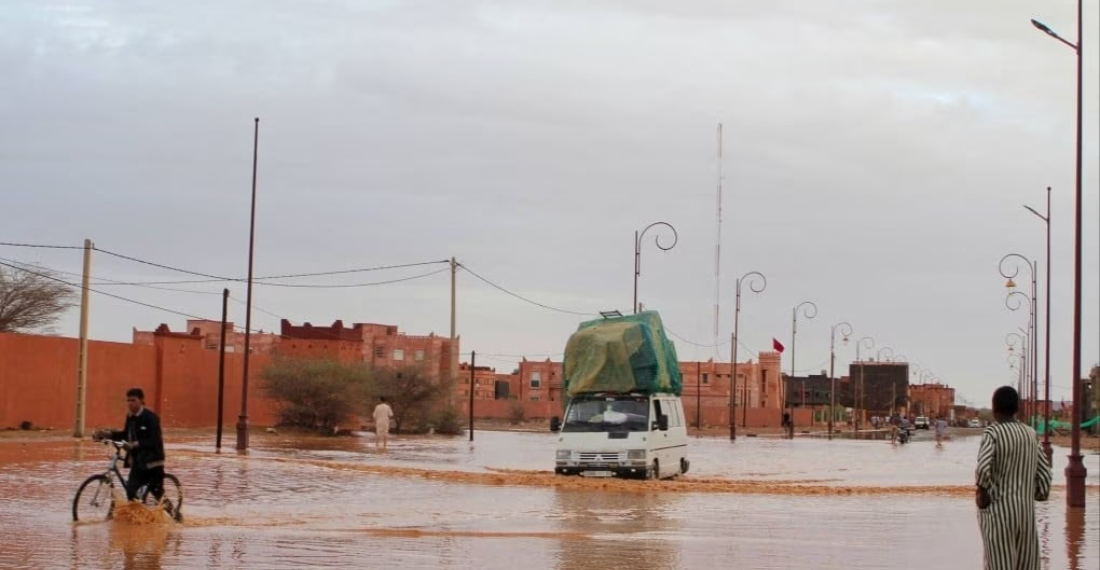Floods in southern Morocco have killed at least 11 people and left nine missing. The Moroccan interior ministry told the French news agency AFP. One of the dead is a foreigner. It did not say who he was.
Seventeen prefectures and provinces in the south were hit by heavy thunderstorms, causing flooding. Seven people died in the province of Tata and two in the province of Errachidia.
The ministry spoke of an "exceptional" weather phenomenon in the area. "The amount of rain measured in two days is equal to the amount that normally falls in the region in a whole year," a spokesman said. In the province of Ouarzazate, 47 millimetres of rain fell in three hours. In Tagounite, near the Algerian border, 170 millimetres fell, according to the meteorological service.
The floods destroyed 40 houses and damaged 93 roads. Drinking water, electricity and telephone networks have also been affected.
Over the past few days, heavy rains have hit normally dry areas of southern Morocco and Algeria, causing flooding. The heavy rains are due to an "extremely unstable tropical air mass", the head of Morocco's meteorological institute told AFP.







